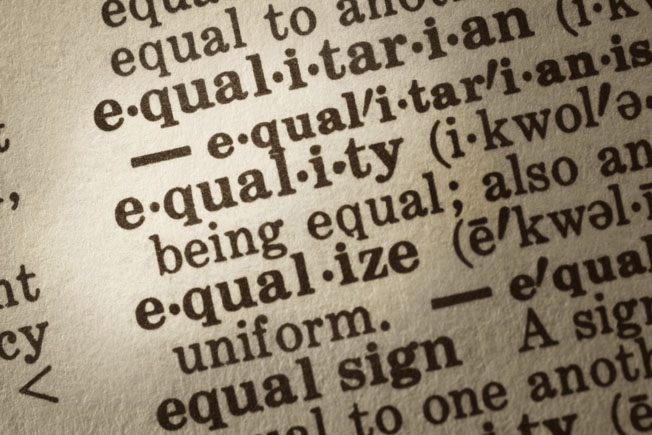As Black History Month 2012?which carries the theme: ?Black Women in American Culture & History? ?comes to a close, it?s a good time to reflect on the profound influence so many African-American women have had on our country. Among the legends who have inspired so many are poets like Gwendolyn Brooks and Maya Angelou, actresses such as Hattie McDaniel, Dorothy Dandridge and Halle Barry, playwrights and writers like Lorraine Hansberry and Toni Morrison, world-class athletes like Althea Gibson and Wilma Randolph, pioneers like astronaut Mae Jemison and Surgeon General M. Jocelyn Elders, and soul-stirring singers like Etta James, Aretha Franklin and the gone-too-soon Whitney Houston.
Their words, their music, their achievements have moved millions, including me, generating headlines and adoration and awards along the way. Not so recognized are the millions of African-American women who have made their own mark in a world where there have been too many barriers for too long, too often built to hold back people of different races, religions, genders, cultures and sexual orientations.
The older I get, the less patience I have when it comes to tearing down those barriers. Creating a diverse and inclusive world is not something that should be debated but embraced. Our industry has made great strides, but it is taking too long to achieve unfettered inclusion.
Like the women already mentioned, Rosa Parks will always be a superstar in my eyes. She started a revolution when she refused to stand so a white person could sit on a Montgomery, AL bus on December 1, 1955. Her nonviolent stance led to her arrest, but ultimately to greater freedom for the masses.
Rosa?s act of civil disobedience and the resulting legislation that turned the country toward a more righteous course was a massive testament to the power of what I refer to as ?dignified intolerance.?
Rosa Parks had simply had enough. Anyone who has ever felt the sting of discrimination knows what she must have felt. While much progress has been made in the 56 years since that fateful bus ride, staggeringly?even as the U.S. Census Bureau repeatedly shows minorities will be this country?s majority by 2030?the world remains awash in discrimination. It is about time we graciously refuse to give in to the demands of the shrinking majority and press the fight for inclusion of all people, no matter their race, religion, gender, physical or mental abilities or sexual orientation.
We must more aggressively challenge inequities in our industries and the communities in which we live. We must also be more demanding when it comes to challenging one another so that we can effect real change in our lifetimes
I believe that if we join up the individual efforts of each diversity group, we can be stronger, louder and more effective in transforming any momentum into a movement.
I recently proclaimed at Draftfcb that by 2014 we will be an organization that no longer uses the term ?diversity and inclusion.? We are working tirelessly, from the C-suite to the intern ranks, to foster an atmosphere of inclusion, where everyone is empowered to reach great heights.
As an industry, we all need to embrace diversity and make sure inclusion becomes our rallying cry. A new generation is already recognizing that the ?new mass? rejects outdated stereotypes regarding color, gender and sexual orientation. They are cross-cultural and cross-behavioral. Our industry needs to follow suit. It?s not just the right thing to do; it will also boost our bottom line. Companies that don?t mirror the dramatic shifts in our population simply will not survive.
To my fellow CEOs and C-suite executives, change starts with us. We must work together to start a joint uprising that will not tolerate discrimination and exclusion. We must lead by example and mentor our future leaders, instilling in them the knowledge that they should pursue paths they might have thought closed to them. We must tirelessly practice what we preach and prove to the marketplace that we are current, relevant and represent the diverse constituents in the New America we are trying to influence.
That is my stake in the ground. Please add your stakes to mine. Let?s get this movement rolling. It would be an achievement that might just prove to matter most.
Tag: resistance
Wearing her ghoonghat a few inches higher
Image and text contributed by Sreenivasan Jain, Mumbai
Some text is paraphrased from a recent Book ? Civil Disobedience, Sreenivasan?s father Late. Shri LC Jain, noted economist and Gandhian.
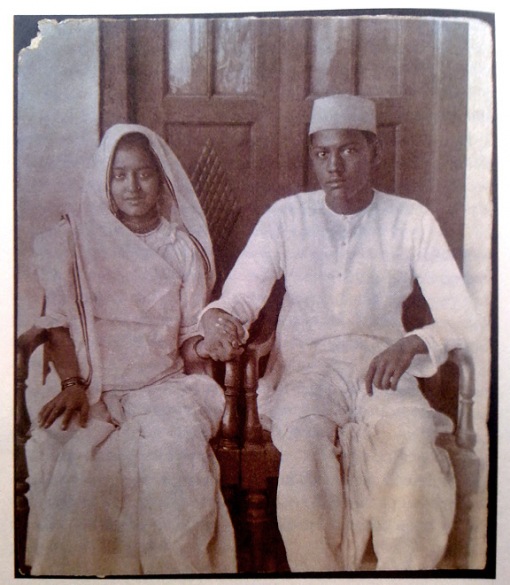
This image was photographed in Delhi, shortly after my Paternal grandparents Chameli and Phool Chand, got married. She was 14 and he was 16. It was unusual for couples in our family to be photographed, especially holding hands, which turned out to be an indication of the unconventional direction their lives would take. They were both Gandhians and Freedom fighters. Continue reading “Wearing her ghoonghat a few inches higher”
Archiving 1971
Date & Time: 12 February, 2012 from 11am to 1pm
Venue: Jatiya Press Club, Dhaka (Conference Room)
The programme will also be online live at www.drik.tv
History, at least in its initial form is generally written by the victor. But who is the victor in a war? How does one value a memory? What purpose does an artifact serve? Each archive is unique; its character shaped on those who set it up, and those who use it. From a photographer?s perspective, the war of 1971 was unique in other ways too. The events leading up to it were documented almost entirely by local photographers. They were themselves caught up in the struggles they were recording. It was not a story that international media neither knew nor was interested in. As such, the immediate aftermath of the crackdown on the 25th March was hardly recorded. For local photographers it was much too dangerous to be out there with a camera. Many of the foreign journalists were locked up in Hotel Intercontinental in Dhaka. It was only the few who managed to sneak out, or film through hotel windows that had tangible records of that fateful night. Others, who recorded those moments, were amateurs who took phenomenal risks in preserving the only visual records of the atrocities. Missing are the subtle nuanced observations. Ordinary people, trying to survive. The euphoria and hope of an expectant nation being replaced overnight by the terror of living under occupation, was a transformation that went unrecorded.
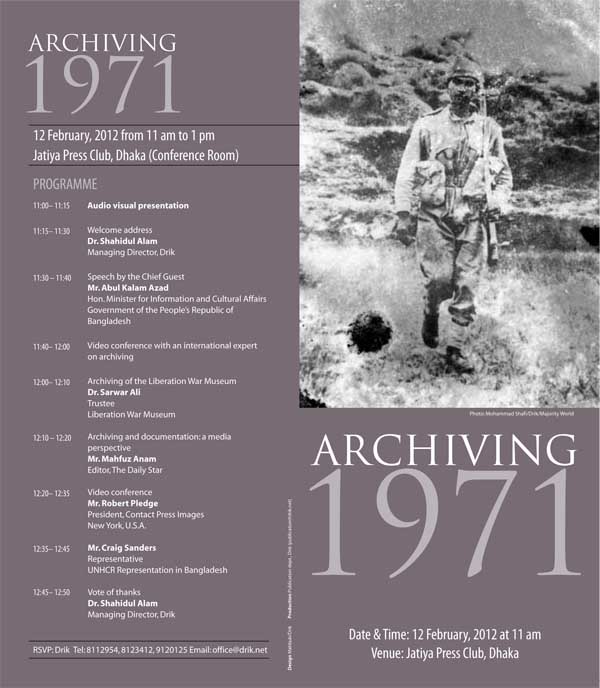 Continue reading “Archiving 1971”
Continue reading “Archiving 1971”
Pop Tech 2011 interview
Subscribe to ShahidulNews
Shahidul Alam on photography for change

Shahidul Alam walked on stage on Thursday wearing a marigold-colored salwar kameez, a camera over his left shoulder, and a beltpack slung around his hips. There was no mistaking his calling. The Bangladeshi photographer, activist and social entrepreneur has almost single-handedly rebalanced the world of photojournalism, long dominated by Western photographers and their worldview. He has shifted its lens eastward and southward by training legions of photographers in his homeland, creating an award-winning photo agency to sell their work and founding a prestigious international photography festival to showcase their talent. And this fall, he published a book,?My Journey as a Witness, telling the story of Bangladeshi photography as an instrument of social justice. He serves as an ambassador of this movement, in the words of PopTech?s executive director, Andrew Zolli, ?travelling the world leaving new cultures of art makers in his wake.? We sat down with Alam backstage in Camden, Maine. Continue reading “Pop Tech 2011 interview”
ConocoPhillips Oil Spill
Subscribe to ShahidulNews
![]()
As government faces increasing criticism over its controversial deal with ConnocoPhillips and pressure mounts to force the government to reveal the contract, an oil spill in China lends weight to the protesters claims that the company has a poor safety record.
ConocoPhillips Halts Oil Operations In Bohai Bay, China
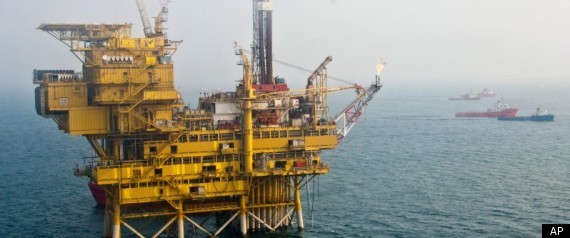
China said Wednesday it had ordered ConocoPhillips to immediately stop operations at several rigs in an area off the nation’s eastern coast polluted by a huge slick.
The 336-square-mile slick emanating from the oil field in Bohai Bay — which ConocoPhillips operates with China’s state-run oil giant CNOOC – has sparked outrage amid allegations of a cover-up.
On Wednesday, the State Oceanic Administration (SOA) said operations would not be allowed to resume before the source of the spill was fully plugged and “risks eliminated,” as fears over the long-term impact on the environment grow.
“There has been oil seeping continuously into the sea for days from platforms B and C in the Penglai 19-3 oil field and there is still a slick in the surrounding marine areas,” the SOA said in a statement.
“Another spill could happen at any time, which has posed a huge threat to the oceanic ecological environment,” it said, adding it had ordered Houston-based ConocoPhillips to stop operations at those platforms.
Spill ‘Basically Under Control’
CNOOC last week said the spill — which was detected on June 4 but only made public at the beginning of July — was “basically under control” while ConocoPhillips told reporters the leaks had been plugged.
The official China Daily newspaper last week said that dead seaweed and rotting fish could be seen in waters around Nanhuangcheng Island near the site of the slick.
It quoted a local fisheries association official as saying the oil leak would have a “long-term” impact on the environment.
CNOOC has been slammed by state media and green groups over the spill, and it emerged on Tuesday that the firm was cleaning up another slick after a breakdown at a rig off the northeast coast.
The state-run giant said the leak was “minor”.
In a separate incident, a CNOOC refinery in the southern province of Guangdong caught fire Monday but there were no casualties, the company said, adding that the cause of the blaze was still under investigation.
The refinery is located about 25 miles from the Daya Bay nuclear power plant, according to the official Xinhua news agency.
Copyright Agence France-Presse, 2011
Attack on "Solidarity for Limon" rally
Subscribe to ShahidulNews
The regular weekly “Solidarity for Limon” rally had been steadily attracting bigger crowds, despite the monsoon rains. The gathering this Friday the 24th June 2011 was especially large. The street plays were popular and since this was not an event aligned to either of the main political parties, it attracted ordinary people who came to express solidarity, or merely to enjoy the performance.
This week’s performance, a drama called Khekshial (Jackal), performed by Aranyak Natyadal in front of the National Museum at around 4:30pm, was however disrupted when two men burst through the surrounding crowd and began wrecking the props.
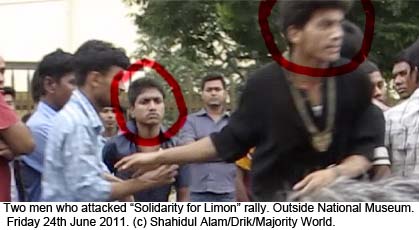
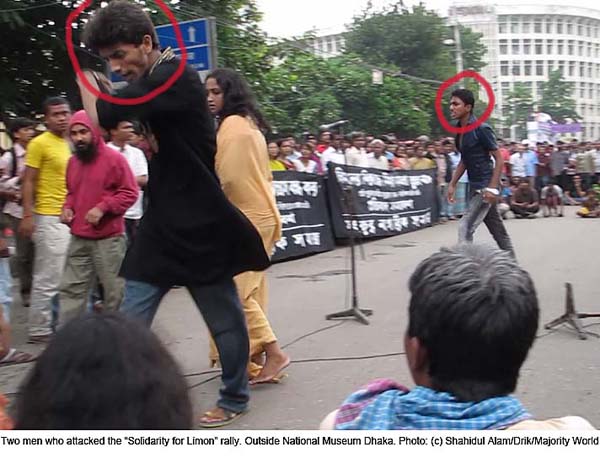
Attack visible from 8 mins 58 secs onwards.
The audience, intially slow to react, as they thought it was part of the play, soon went after the men, but they disappeared into the crowd. Later a young man called Al-Amin was caught by the crowd and accused of being one of the attackers. The man was taken away by Shahbag police, who arrived sometime after the event. The police are reported to have released Al-Amin as he was an innocent by-stander.
The organisers have pledged to continue their protests until the government withdraw the false cases against Limon Hossein and provide adequate compensation for the loss of his leg.
`Attack on demo for Limon,’ bdnews24
Fri, Jun 24th, 2011 8:23 pm BdST
http://www.bdnews24.com/details.php?id=199289&cid=2
and, `Goons attack demo for Limon,’ New Age, 25/06/2011 00:42:00
http://newagebd.com/newspaper1/frontpage/23806.html
Limon Protest 3
Subscribe to ShahidulNews
Solidarity Rally for Limon
Friday June 17, 2011
4:00 – 5:00 p.m.
Outside the National Museum (Shahbagh)
It was the third rally in support of Limon Hossein?a 16 year old Jhalokathi college student, the son of an agricultural day-labourer, who was shot by RAB personnel on March 23, 2011, leading to the amputation of his left leg.
The false cases in which Limon has been implicated — possessing illegal arms, obstructing law-enforcement agencies in the pursuance of their duties — still stand; high-up government officials have stated that not only is Limon a `criminal’, his father too, is a `criminal.’
State harassment and persecution of Limon MUST be resisted because it affects all of us, he is our son, he symbolises the nation’s future. He has become a test case, and we must put our foot down and insist, Too many lives have been lost! No More!
We collected signatures in support of our demands (see below) The human chain was joined by passersby. A young theatre group from the nearby town Narayanganj Ei Bangla’y performed their street play, `Shobuj Pori.’ We were encouraged by the fact that every week ever bigger numbers of spectators gathered (see video below).
Our demands are:
? Stop fabricating cases against Limon and his family members.
? Ensure the security of Limon, and his family members
? Punish the perpetrators
Masud Imran (Mannu), asst professor, archaeology, Jahangirnagar university
Naseem Akhter Hussain, professor, govt and politics, Jahangirnagar university
Sayema Khatun, asst professor, anthropology, Jahangirnagar university
Mahmudul Shumon, asst professor, anthropology, Jahangirnagar university
Nasrin Khondkar, asst professor, anthropology, Jahangirnagar university
and, rahnuma ahmed, writer
THE END OF AUTHORITARIANISM IN THE ARAB WORLD?
Subscribe to ShahidulNews
Mubarak’s Ignominious Departure and the Fear Factor
by rahnuma ahmed
Mubarak is gone! Egypt is free!
Equally true is the fact that power has been assumed by the Supreme Council of the Armed Forces. That the 30 year-old state of emergency has not yet been lifted, neither has any time frame been set, nothing beyond the invocation, “as soon as the current circumstances are over.” ?Equally true is the fact that Egypt’s new, transitional (military) rulers have been quick to affirm Egypt’s commitment to all regional and international obligations and treaties, an implicit signal that the treaty of all treaties, Egypt’s peace treaty with Israel?propagated as a bulwark for peace and stability in the region, but in reality, one which helps sustain Israel’s military occupation of the West Bank and the seige of Gaza?is not under threat. An affirmation swiftly welcomed by the Israeli prime minister Benjamin Netanyahu, who described the treaty as “having greatly contributed to both countries,” as “the cornerstone for peace and stability in the entire Middle East”; close at his heels was US president Barack Obama who welcomed the Egyptian pledge to “stand by” its international obligations.
But, it is also true that while Egyptian demonstrators, both young and old, rallied to scrub off slogans and graffiti from walls, to clean up the streets of Cairo of rocks, debris of violence, charred remains of Mubarak’s effigy (“Clearing the streets is just a start. It is our country now”), protestors still camped out in Tahrir square, refusing to leave until the military issued official statements on their next steps. It is also true that pro-democracy activists insist that their revolt was not against one man but against the whole regime, which Mubarak and his predecessors, had instituted. It is also true that their invincible strength prevented Omar Suleiman?the CIA’s man in Cairo who devised and implemented the programme for renditioning and torturing terrorist suspects,?in whom Mubarak transferred authorities while still clinging to power?from taking charge. Pro-democracy activists insist that the revolution will not be over until all responsible for the hundreds of deaths will be investigated, tried and punished. It will not be over until Egypt’s stolen funds are restored.
Swiss banks have frozen assets of the ousted president, who is currently hunkered down in his residence at the Red Sea tourist resort, Sharm al-Sheikh. Former interior minister Habib El Adly, former prime minister Ahmed Nazif have been banned from travelling, their assets have been frozen. Former information minister Anna El Feqy has been placed under house arrest while rumors fly of business tycoons fleeing. But it is also true that while figures are totted up of how much the former president, his Welsh wife and their son fleeced Egypt, that while the huge personal wealth amassed by other members of the corrupt coterie are calculated, one does not hear of corruption within the army. That these stories are silenced.
But it is undeniable that the mass uprising was organic. One that persisted after Mubarak’s ouster, attested to by scenes of youths in Alexandria, the mainstay of the uprising, stopping cars and telling their occupants, abide by traffic rules. Of telling pedestrians, do not give bribes, read up the constitution.
It is also true that the mass uprising did not occur overnight but was, as Marwan Bishara reminds us, “the culmination of countless sit-ins, strikes, pickets, and demonstrations.”
That behind the 18 day popular revolt lies long years of grassroots mobilisation, the tireless efforts of scores of coalition builders who worked with labour unions and opposition parties, both old and new, including the Muslim Brotherhood. That we must not forget people such as, says Bishara, the late Mohammad El-Sayed Said who helped to found the Cairo Institute of Human Rights Studies and, the Egyptian Organisation for Human Rights. Who underwent arrest and torture for writing the “much-acclaimed report about the punishment of dissidents by torture” (Al-Ahram). Who died last year after a long period of ill-treatment at the hands of the Mubarak regime, and a 2-year struggle with cancer. Who was “much missed in Tahrir Square.” There were many others.
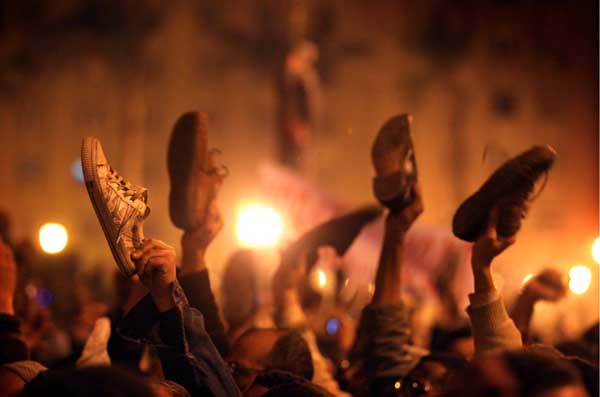
It is also true that Mubarak was suffering from severe delusions when he confided in a 20 minute telephone conversation to former Israeli defense minister Binyamin Ben-Eliezer, a close friend and ally, that he was looking for “an honorable way out” (Press TV, February 12, 2011). ?This was on Thursday, February 10, the day he refused to step down as anticipated, offering his “children” constitutional changes instead, and transfer of authorities to Suleiman. It was the speech greeted with raised shoes, the ultimate sign of dishonor for leaders and politicians in our parts of the world. One that was globally iconised by Muntazer al-Zaidi, the Iraqi journalist who threw his shoe at George Bush in 2008. A farewell parting.
Continue reading “THE END OF AUTHORITARIANISM IN THE ARAB WORLD?”
We all helped suppress the Egyptians. So how do we change?
Subscribe to ShahidulNews
By Johann Hari
The Independent
Friday, 4 February 2011
Very few British people would beat up a poor person to get cheaper petrol. But our governments do it all the time. Why?
The old slogan from the 1960s has come true: the revolution has been televised. The world is watching the Bastille fall on 24/7 rolling news. An elderly thug is trying to buy and beat and tear-gas himself enough time to smuggle his family’s estimated $25bn in loot out of the country, and to install a successor friendly to his interests. The Egyptian people ? half of whom live on less than $2 a day ? seem determined to prevent the pillage and not to wait until September to drive out a dictator dripping in blood and bad hair dye.
The great Czech dissident Vaclav Havel outlined the “as if” principle. He said people trapped under a dictatorship need to act “as if they are free”. They need to act as if the dictator has no power over them. The Egyptians are trying ? and however many of them Mubarak murders on his way out the door, the direction in which fear flows has been successfully reversed. The tyrant has become terrified of “his” people.
Of course, there is a danger that what follows will be worse. My family lived for a time under the torturing tyranny of the Shah of Iran, and cheered the revolution in 1979. Yet he was replaced by the even more vicious Ayatollahs. But this is not the only model, nor the most likely. Events in Egypt look more like the Indonesian revolution, where in 1998 a popular uprising toppled a US-backed tyrant after 32 years of oppression ? and went on to build the largest and most plural democracy in the Muslim world.
But the discussion here in the West should focus on the factor we are responsible for and can influence ? the role our governments have played in suppressing the Egyptian people. Your taxes have been used to arm, fund and fuel this dictatorship. You have unwittingly helped to keep these people down. The tear-gas canisters fired at pro-democracy protesters have “Made in America” stamped on them, with British machine guns and grenade launchers held in the background.
Very few British people would praise a murderer and sell him weapons. Very few British people would beat up a poor person to get cheaper petrol. But our governments do it all the time. Why? British foreign policy does not follow the everyday moral principles of the British people, because it is not formulated by us. This might sound like an odd thing to say about a country that prides itself on being a democracy, but it is true.
The former Labour MP Lorna Fitzsimons spoke at a conference for Israel’s leaders last year and assured them they didn’t have to worry about the British people’s growing opposition to their policies because “public opinion does not influence foreign policy in Britain. Foreign policy is an elite issue”. This is repellent but right. It is formulated in the interests of big business and their demand for access to resources, and influential sectional interest groups.
You can see this most clearly if you go through the three reasons our governments give, sometimes publicly, sometimes privately, for their behavior in the Middle East. Explanation One: Oil. Some 60 per cent of the world’s remaining petrol is in the Middle East. We are all addicted to it, so our governments support strongmen and murderers who will keep the oil-taps gushing without interruption. Egypt doesn’t have oil, but it has crucial oil pipelines and supply routes, and it is part of a chain of regional dictators we don’t want broken in case they all fall taking the petrol pump with it. Addicts don’t stand up to their dealers: they fawn before them.
There is an obvious medium-term solution: break our addiction. The technology exists ? wind, wave and especially solar power ? to fuel our societies without oil. It would free us from our support for dictators and horrific wars of plunder like Iraq. It’s our society’s route to rehab ? but it is being blocked by the hugely influential oil companies, who would lose a fortune. Like everybody who needs to go to rehab, the first step is to come out of denial about why we are still hooked.
Explanation Two: Israel and the “peace process”. Over the past week, we have persistently been told that Mubarak was a key plank in supporting “peace in the Middle East”. The opposite is the truth. Mubarak has been at the forefront of waging war on the Palestinian population. There are 1.5 million people imprisoned on the Gaza Strip denied access to necessities like food and centrifuges for their blood transfusion service. They are being punished for voting “the wrong way” in a democratic election.
Israel blockades Gaza to one side, and Mubarak blockades it to the other. I’ve stood in Gaza and watched Egyptian soldiers refusing to let sick and dying people out for treatment they can’t get in Gaza’s collapsing hospitals. In return for this, Mubarak receives $1.5bn a year from the US. Far from contributing to peace, this is marinating the Gazan people in understandable hatred and dreams of vengeance. This is bad even for Israel herself ? but we are so servile to the demands of the country’s self-harming government, and to its loudest and angriest lobbyists here, that our governments obey.
Explanation Three: Strongmen suppress jihadism. Our governments claim that without dictators to suppress, torture and disappear Islamic fundamentalists, they will be unleashed and come after us. Indeed, they often outsourced torture to the Egyptian regime, sending suspects there to face things that would be illegal at home. Robert Baer, once a senior figure in black ops at the CIA, said: “If you want them to be tortured, you send them to Syria. If you want someone to disappear, you send them to Egypt.”
Western governments claim all this makes us safer. The opposite is the truth. In his acclaimed history of al-Qa’ida, The Looming Tower, Lawrence Wright explains: “America’s tragedy on September 11th was born in the prisons of Egypt.” Modern jihadism was invented by Sayeed Qutb as he was electrocuted and lashed in Egyptian jails and grew under successive tyrannies. Mohammed Atta, the lead 9/11 hijacker, was Egyptian, and named US backing for his country’s tyrant as one of the main reasons for the massacre.
When we fund the violent suppression of people, they hate us, and want to fight back. None of these factors that drove our governments to back Mubarak’s dictatorship in Egypt have changed. So we should strongly suspect they will now talk sweet words about democracy in public, and try to secure a more PR-friendly Mubarak in private.
It doesn’t have to be like this. We could make our governments as moral as we, the British people, are in our everyday lives. We could stop them trampling on the weak, and fattening thugs. But to achieve it, we have to democratise our own societies and claim control of our foreign policy. We would have to monitor and campaign over it, and let our governments know there is a price for behaving viciously abroad. The Egyptian people have shown this week they will risk everything to stop being abused. What will we risk to stop our governments being abusers?
http://www.independent.co.uk/opinion/commentators/johann-hari/johann-hari-we-all-helped-suppress-the-egyptians-so-how-do-we-change-2203579.html
Poems of war, peace, women, power
Subscribe to ShahidulNews
By Suheir Hammad
I will not
dance to your war
drum. I will
not lend my soul nor
my bones to your war
drum. I will
not dance to your
beating. I know that beat.
It is lifeless. I know
intimately that skin
you are hitting. It
was alive once
hunted stolen
stretched. I will
not dance to your drummed
up war. I will not pop
spin break for you. I
will not hate for you or
even hate you. I will
not kill for you. Especially
I will not die
for you. I will not mourn
the dead with murder nor
suicide. I will not side
with you or dance to bombs
because everyone else is
dancing. Everyone can be
wrong. Life is a right not
collateral or casual. I
will not forget where
I come from. I
will craft my own drum. Gather my beloved
near and our chanting
will be dancing. Our
humming will be drumming. I
will not be played. I
will not lend my name
nor my rhythm to your
beat. I will dance
and resist and dance and
persist and dance. This heartbeat is louder than
death. Your war drum ain?t
louder than this breath.

